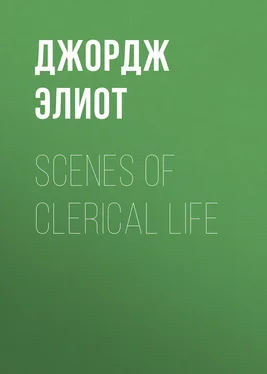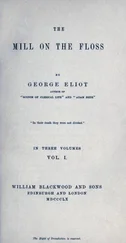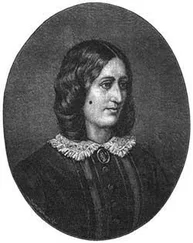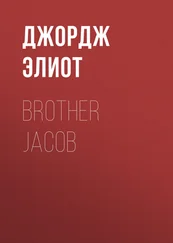Джордж Элиот - Scenes of Clerical Life
Здесь есть возможность читать онлайн «Джордж Элиот - Scenes of Clerical Life» — ознакомительный отрывок электронной книги совершенно бесплатно, а после прочтения отрывка купить полную версию. В некоторых случаях можно слушать аудио, скачать через торрент в формате fb2 и присутствует краткое содержание. Жанр: foreign_antique, Религиозная литература, foreign_religion, на английском языке. Описание произведения, (предисловие) а так же отзывы посетителей доступны на портале библиотеки ЛибКат.
- Название:Scenes of Clerical Life
- Автор:
- Жанр:
- Год:неизвестен
- ISBN:нет данных
- Рейтинг книги:5 / 5. Голосов: 1
-
Избранное:Добавить в избранное
- Отзывы:
-
Ваша оценка:
- 100
- 1
- 2
- 3
- 4
- 5
Scenes of Clerical Life: краткое содержание, описание и аннотация
Предлагаем к чтению аннотацию, описание, краткое содержание или предисловие (зависит от того, что написал сам автор книги «Scenes of Clerical Life»). Если вы не нашли необходимую информацию о книге — напишите в комментариях, мы постараемся отыскать её.
Scenes of Clerical Life — читать онлайн ознакомительный отрывок
Ниже представлен текст книги, разбитый по страницам. Система сохранения места последней прочитанной страницы, позволяет с удобством читать онлайн бесплатно книгу «Scenes of Clerical Life», без необходимости каждый раз заново искать на чём Вы остановились. Поставьте закладку, и сможете в любой момент перейти на страницу, на которой закончили чтение.
Интервал:
Закладка:
But now Mr. Barton's attention was called for by Mr. Spratt, who was dragging a small and unwilling boy from the rear. Mr. Spratt was a small-featured, small-statured man, with a remarkable power of language, mitigated by hesitation, who piqued himself on expressing unexceptionable sentiments in unexceptional language on all occasions.
'Mr. Barton, sir—aw—aw—excuse my trespassing on your time—aw—to beg that you will administer a rebuke to this boy; he is—aw—aw—most inveterate in ill-behaviour during service-time.'
The inveterate culprit was a boy of seven, vainly contending against 'candles' at his nose by feeble sniffing. But no sooner had Mr. Spratt uttered his impeachment, than Miss Fodge rushed forward and placed herself between Mr. Barton and the accused.
'That's my child, Muster Barton,' she exclaimed, further manifesting her maternal instincts by applying her apron to her offspring's nose. 'He's al'ys a-findin' faut wi' him, and a-poundin' him for nothin'. Let him goo an' eat his roost goose as is a-smellin' up in our noses while we're a-swallering them greasy broth, an' let my boy alooan.'
Mr. Spratt's small eyes flashed, and he was in danger of uttering sentiments not unexceptionable before the clergyman; but Mr. Barton, foreseeing that a prolongation of this episode would not be to edification, said 'Silence!' in his severest tones.
'Let me hear no abuse. Your boy is not likely to behave well, if you set him the example of being saucy.' Then stooping down to Master Fodge, and taking him by the shoulder, 'Do you like being beaten?'
'No-a.'
'Then what a silly boy you are to be naughty. If you were not naughty, you wouldn't be beaten. But if you are naughty, God will be angry, as well as Mr. Spratt; and God can burn you for ever. That will be worse than being beaten.'
Master Fodge's countenance was neither affirmative nor negative of this proposition.
'But,' continued Mr. Barton, 'if you will be a good boy, God will love you, and you will grow up to be a good man. Now, let me hear next Thursday that you have been a good boy.'
Master Fodge had no distinct vision of the benefit that would accrue to him from this change of courses. But Mr. Barton, being aware that Miss Fodge had touched on a delicate subject in alluding to the roast goose, was determined to witness no more polemics between her and Mr. Spratt, so, saying good morning to the latter, he hastily left the College.
The snow was falling in thicker and thicker flakes, and already the vicarage-garden was cloaked in white as he passed through the gate. Mrs. Barton heard him open the door, and ran out of the sitting-room to meet him.
'I'm afraid your feet are very wet, dear. What a terrible morning! Let me take your hat. Your slippers are at the fire.'
Mr. Barton was feeling a little cold and cross. It is difficult, when you have been doing disagreeable duties, without praise, on a snowy day, to attend to the very minor morals. So he showed no recognition of Milly's attentions, but simply said, 'Fetch me my dressing-gown, will you?'
'It is down, dear. I thought you wouldn't go into the study, because you said you would letter and number the books for the Lending Library. Patty and I have been covering them, and they are all ready in the sitting-room.'
'Oh, I can't do those this morning,' said Mr. Barton, as he took off his boots and put his feet into the slippers Milly had brought him; 'you must put them away into the parlour.'
The sitting-room was also the day nursery and schoolroom; and while Mamma's back was turned, Dickey, the second boy, had insisted on superseding Chubby in the guidance of a headless horse, of the red-wafered species, which she was drawing round the room, so that when Papa opened the door Chubby was giving tongue energetically.
'Milly, some of these children must go away. I want to be quiet.'
'Yes, dear. Hush, Chubby; go with Patty, and see what Nanny is getting for our dinner. Now, Fred and Sophy and Dickey, help me to carry these books into the parlour. There are three for Dickey. Carry them steadily.'
Papa meanwhile settled himself in his easy-chair, and took up a work on Episcopacy, which he had from the Clerical Book Society; thinking he would finish it and return it this afternoon, as he was going to the Clerical Meeting at Milby Vicarage, where the Book Society had its headquarters.
The Clerical Meetings and Book Society, which had been founded some eight or ten months, had had a noticeable effect on the Rev. Amos Barton. When he first came to Shepperton he was simply an evangelical clergyman, whose Christian experiences had commenced under the teaching of the Rev. Mr. Johns, of Gun Street Chapel, and had been consolidated at Cambridge under the influence of Mr. Simeon. John Newton and Thomas Scott were his doctrinal ideals; he would have taken in the "Christian Observer" and the "Record," if he could have afforded it; his anecdotes were chiefly of the pious-jocose kind, current in dissenting circles; and he thought an Episcopalian Establishment unobjectionable.
But by this time the effect of the Tractarian agitation was beginning to be felt in backward provincial regions, and the Tractarian satire on the Low-Church party was beginning to tell even on those who disavowed or resisted Tractarian doctrines. The vibration of an intellectual movement was felt from the golden head to the miry toes of the Establishment; and so it came to pass that, in the district round Milby, the market-town close to Shepperton, the clergy had agreed to have a clerical meeting every month, wherein they would exercise their intellects by discussing theological and ecclesiastical questions, and cement their brotherly love by discussing a good dinner. A Book Society naturally suggested itself as an adjunct of this agreeable plan; and thus, you perceive, there was provision made for ample friction of the clerical mind.
Now, the Rev. Amos Barton was one of those men who have a decided will and opinion of their own; he held himself bolt upright, and had no self-distrust. He would march very determinedly along the road he thought best; but then it was wonderfully easy to convince him which was the best road. And so a very little unwonted reading and unwonted discussion made him see that an Episcopalian Establishment was much more than unobjectionable, and on many other points he began to feel that he held opinions a little too far-sighted and profound to be crudely and suddenly communicated to ordinary minds. He was like an onion that has been rubbed with spices; the strong original odour was blended with something new and foreign. The Low-Church onion still offended refined High Church nostrils, and the new spice was unwelcome to the palate of the genuine onion-eater.
We will not accompany him to the Clerical Meeting today, because we shall probably want to go thither some day when he will be absent. And just now I am bent on introducing you to Mr. Bridmain and the Countess Czerlaski, with whom Mr. and Mrs. Barton are invited to dine tomorrow.
Chapter 3
Outside, the moon is shedding its cold light on the cold snow, and the white-bearded fir-trees round Camp Villa are casting a blue shadow across the white ground, while the Rev. Amos Barton, and his wife are audibly crushing the crisp snow beneath their feet, as, about seven o'clock on Friday evening, they approach the door of the above-named desirable country residence, containing dining, breakfast, and drawing rooms, etc., situated only half a mile from the market-town of Milby.
Inside, there is a bright fire in the drawing-room, casting a pleasant but uncertain light on the delicate silk dress of a lady who is reclining behind a screen in the corner of the sofa, and allowing you to discern that the hair of the gentleman who is seated in the arm-chair opposite, with a newspaper over his knees, is becoming decidedly grey. A little 'King Charles', with a crimson ribbon round his neck, who has been lying curled up in the very middle of the hearth-rug, has just discovered that that zone is too hot for him, and is jumping on the sofa, evidently with the intention of accommodating his person on the silk gown. On the table there are two wax-candles, which will be lighted as soon as the expected knock is heard at the door.
Читать дальшеИнтервал:
Закладка:
Похожие книги на «Scenes of Clerical Life»
Представляем Вашему вниманию похожие книги на «Scenes of Clerical Life» списком для выбора. Мы отобрали схожую по названию и смыслу литературу в надежде предоставить читателям больше вариантов отыскать новые, интересные, ещё непрочитанные произведения.
Обсуждение, отзывы о книге «Scenes of Clerical Life» и просто собственные мнения читателей. Оставьте ваши комментарии, напишите, что Вы думаете о произведении, его смысле или главных героях. Укажите что конкретно понравилось, а что нет, и почему Вы так считаете.










